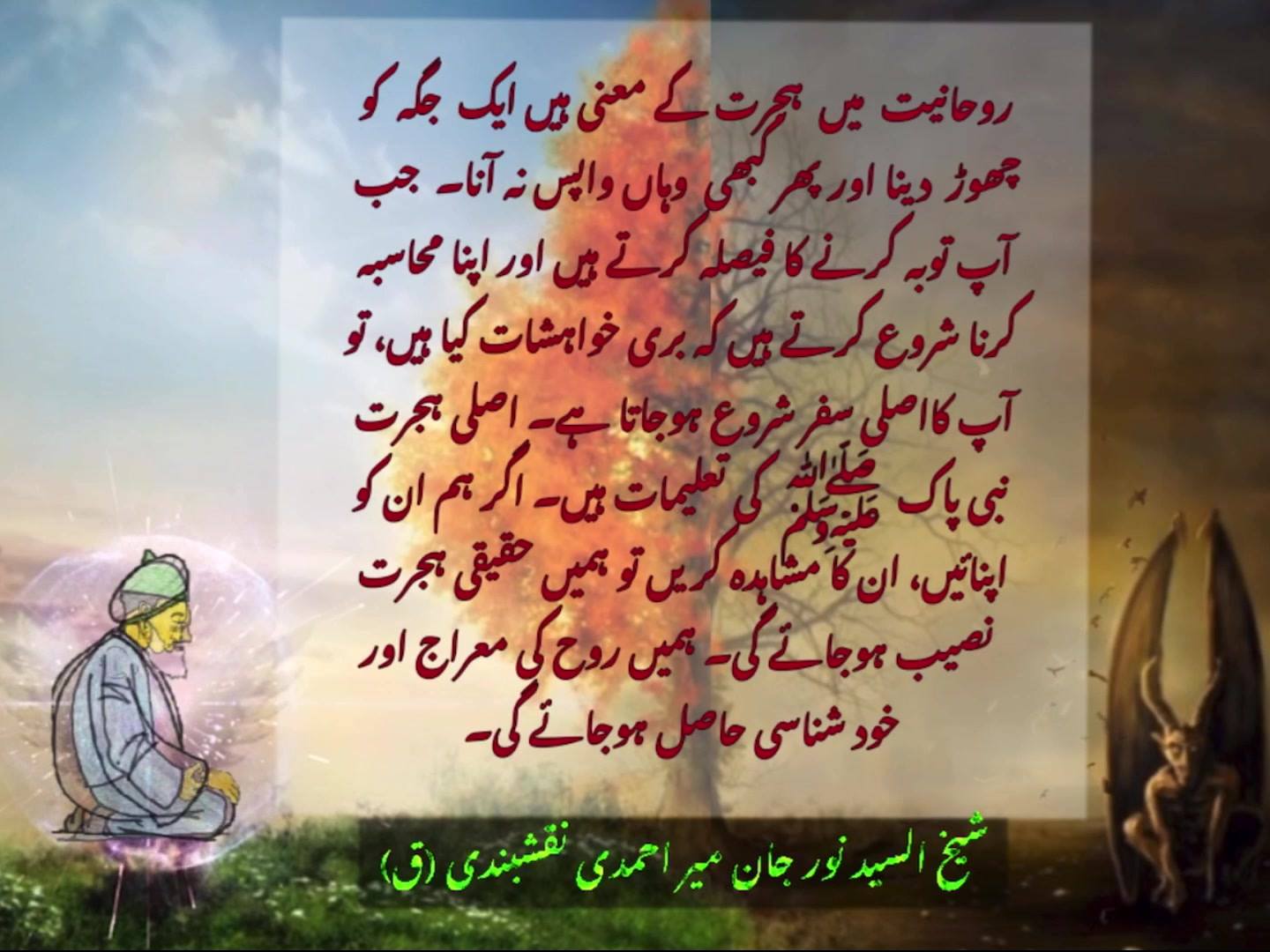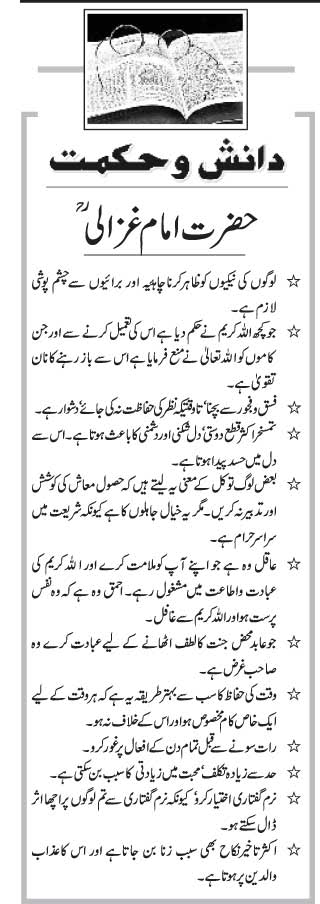
It was his habit from an early age, he says, to search for the true reality of things. The inner development leading to his conversion is explained in his autobiography, al-Munqidh min al-dalal (The Deliverer from Error), written late in his life. After leaving Baghdad, he wandered as a Sufi in Syria and Palestine before returning to Tus, where he was engaged in writing, Sufi practices and teaching his disciples until his death. This event marks the beginning of the third period of his life, that of retirement (AH 488-505/AD 1095-1111), but which also included a short period of teaching at the Nizamiyyah College in Nishapur. In the political confusion following the assassination of Nizam al-Mulk and the subsequent violent death of Sultan Malikshah, al-Ghazali himself fell into a serious spiritual crisis and finally left Baghdad, renouncing his career and the world. During this time, as well as lecturing on Islamic jurisprudence at the College, he was also busy refuting heresies and responding to questions from all segments of the community. The second period of al-Ghazali’s life was his brilliant career as the highest-ranking orthodox ‘doctor’ of the Islamic community in Baghdad (AH 484-8/AD 1091-5). After the death of his teacher, Imam al-Haramayn AL-JUWAYNI, Ghazali moved to the court of Nizam al-Mulk, the powerful vizir of the Seljuq Sultans, who eventually appointed him head of the Nizamiyyah College at Baghdad in AH 484/AD 1091.

The first is the period of learning, first in his home town of Tus in Persia, then in Gurgan and finally in Nishapur. The eventful life of Abu Hamid Muhammad ibn Muhammad al-Ghazali (or al-Ghazzali) can be divided into three major periods. Though Islamic philosophy did not long survive al-Ghazali’s criticism, he contributed greatly to the subsequent philosophization of Islamic theology and Sufism. Thus Sufism came to be generally recognized in the Islamic community. Through his own religious experience, he worked to revive the faith of Islam by reconstructing the religious sciences upon the basis of Sufsm, and to give a theoretical foundation to the latter under the influence of philosophy. It was only later that he finally attained to that truth in the ecstatic state (fana’) of the Sufi.

However, he was also forced to admit that the certainty, of revelatory truth, for which he was so desperately searching, cannot be obtained by reason. The importance of his criticism lies in his philosophical demonstration that the philosophers’ metaphysical arguments cannot stand the test of reason. He mastered philosophy and then criticized it in order to Islamicize it. First of all, his attitude towards philosophy was ambivalent it was both an object and criticism and an object of learning (for example, logic and the natural sciences). In fact, his refutation of philosophy is not a mere criticism from a certain (orthodox) theological viewpoint. (This means that the traditional form of Islamic faith was in a very critical condition at the time.) This realization is possibly related to his criticism of Islamic philosophy. It was, he says, due to his realization that there was no way to certain knowledge or the conviction of revelatory truth except through Sufism.

In the meantime he resumed teaching for a few years at the Nizamiyyah College in NishapurĪl-Ghazali explained in his autobiography why he renounced his brilliant career and turned to Sufism. Four years later, however, al-Ghazali fell into a serious spiritual crisis and finally left Baghdad, renouncing his career and the world After wandering in Syria and Palestine for about two years and finishing the pilgrimage to Mecca, he returned to Tus, where he was engaged in writing, Sufi practices and teaching his disciples until his death. As the intellectual head of the Islamic community, he was busy lecturing on Islamic jurisprudence at the College, and also refuting heresies and responding to questions from all segments of the community.

Being recognized by Nizam al-Mulk, the vizir of the Seljuq sultans, he was appointed head of the Nizamiyyah College at Baghdad in AH 484/AD 1091. He was also involved in Sufi practices from an early age. He learned various branches of traditional Islamic religious sciences in his home town of Tus, Gurgan and Nishapur in the northern part of Iran. Al-Ghazali is one of the greatest Islamic Jurists, theologians and mystical thinkers.


 0 kommentar(er)
0 kommentar(er)
